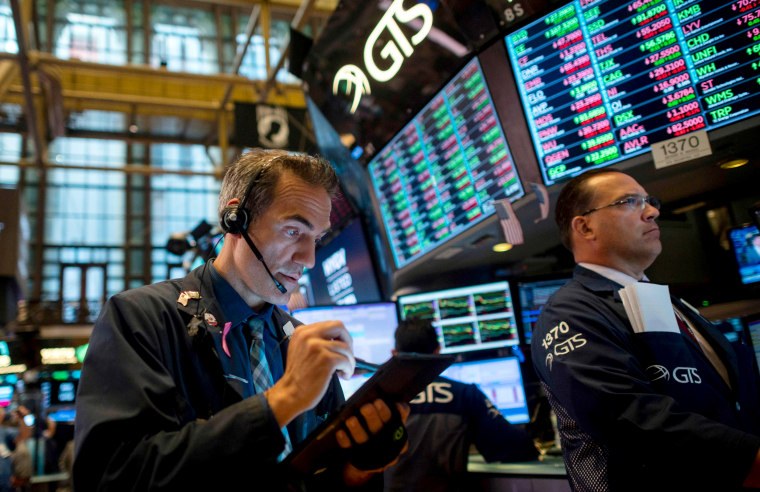This week is one of the biggest of the year for corporate earnings, with companies ranging from Boeing to UPS reporting quarterly revenue and affirming or revising earlier guidance. Analysts will be watching for signs that slower growth and China trade tensions are weighing on profits.
“I’ll be separating the companies that are doing well as far as stock prices go because they beat lowered expectations, and companies that actually had real growth,” said Mitchell Goldberg, president of ClientFirst Strategy.
Along with the actual figures, Goldberg said the way companies frame the results will be telling. “You have to look at their commentary. The commentary really will say it all,” he said. Since chief executives and chief financial officers tend to avoid using language that could spook investors, any mention of protracted weakness or uncertainty could raise red flags, he said.
“If they talk about uncertainty in the near-term economy, and if they see price pressure like the cost of goods go up where they can’t raise prices, their profit margins could erode,” said Goldberg.
A number of big tech and telecom companies, including Amazon, Facebook, AT&T and Google parent Alphabet, also report earnings this week.
“In terms of technology, our expectation is we’re looking for a 2.2 percent decline, year-on-year, for the June quarter, down from a 4 percent gain last quarter. And we actually think that we’re going to see an even deeper decline in the September quarter,” said Sam Stovall, chief investment strategist at CFRA Research.
As with other sectors, Stovall said ripple effects of the China trade impasse and worry over escalation were primary culprits. “Customers are being more prudent with inventories because of the uncertain geopolitical trade situation. Hardware and semiconductors are expected to experience the most pronounced declines,” he said.
Coca-Cola reported second-quarter earnings Tuesday, raising its revenue forecast for the remainder of 2019. “We saw some clouds on the horizon, but the storm never arrived,” CEO James Quincey told CNBC, citing improved economic conditions. But he also credited his firm's strategic shift away from sugary drinks.
Visa is set to announce its results after market close on Tuesday, and analysts say evidence of robust purchase activity would dovetail with the healthy retail sales figures reported last week. Retail sales excluding cars, gasoline, and restaurant purchases were up by 0.6 percent in June.
“The consumer remains engaged… Consumer spending gave a boost to the economy in the second quarter,” Jack Kleinhenz, chief economist at the National Retail Federation, said in a statement.
But analysts question how long this optimism can be sustained in the face of slowing corporate investment, higher costs and pronounced uncertainty in the face of trade tensions — and analysts say they are watching several sectors for evidence of a slowing economy.
“The materials companies we think are definitely going to be experiencing a lot of pressure, mainly because of overseas economic growth, currency fluctuations, higher raw materials and logistics prices,” Stovall said.
“One sector I’m paying attention to is transports. Results have been mediocre, but their expectations were already low,” said Douglas Boneparth, president of Bone Fide Wealth. FedEx reported at the end of June figures that beat expectations, but company executives cautioned that “macroeconomic weakness and trade uncertainty” threatened its core Express business.
Rival UPS reports earnings this week, and Boneparth said macroeconomic weakness, especially in the European market, could show up in its results, as well. “I just think everything’s slowing in general,” he said.
Peter Cardillo, chief market economist at Spartan Capital Securities, said investors should watch the performance of biotech and commodities firms.
“I think investors will be scrutinizing the laggards of the market… to see if there’s any improvement [and] if there are any hints to real economic weakness ahead,” he said.
Boneparth said fingerprints of the trade war were on many of the downward-trending metrics.
“You can see the trade war’s impact across broad sectors of the economy, from manufacturing to agriculture,” he said, noting that many of corporate America’s biggest players rely on stable trade with China for continued business growth.
“There’s uncertainty out there. It can get worse as long as we’re taking the position that we are with China,” he said. “These things could come home to roost.”
